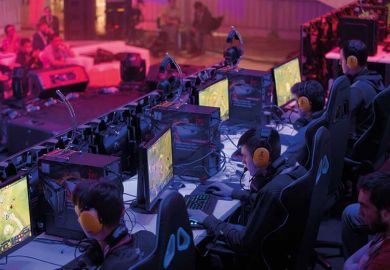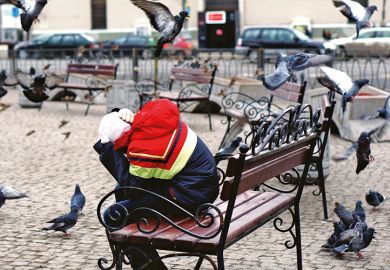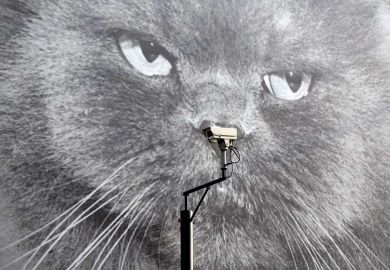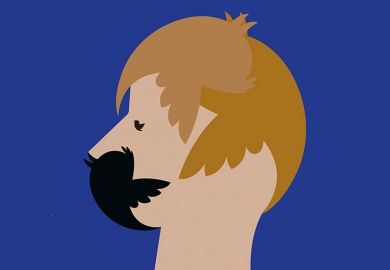The popular uprising at the University of Virginia that protected its president from an unwarranted firing in 2012 now stands as a failure, a social media expert has warned his academic colleagues, because it helped spread the wrong message.
The successful campaign to reinstate Teresa Sullivan – orchestrated by students away from campus on summer break – was a marvel of online activism, said Siva Vaidhyanathan, Robertson professor of modern media studies at Virginia.
But, Professor Vaidhyanathan told the Worldviews 2019 conference in Toronto, the case also helped build the notion that broad and rapid communication among large numbers of people – the so-called democratisation of media – is equivalent to a spread of democracy itself.
That’s a badly mistaken belief, he said, as was tragically proven to the Virginia campus in Charlottesville five years later when white supremacists used the same social media tools to orchestrate a deadly neo-Nazi rally.
“Yes, we restored our president,” Professor Vaidhyanathan said, referring to the secretive and aborted ousting of Professor Sullivan by a governing board that apparently felt she was moving Virginia too slowly into the online era. “But we did not protect the university, and we did not protect higher education in any significant way.”
Professor Vaidhyanathan, the author of Antisocial Media: How Facebook Disconnects Us and Undermines Democracy, said that such cases should discourage higher education from thinking that technology alone – through such innovations as massive open online courses – will solve tough problems surrounding access and affordability.
Faith in technology to produce positive global transformation had become especially seductive in 2012 when Virginia’s governing board grew restive watching the likes of Stanford and Harvard universities, and the Massachusetts Institute of Technology, develop online courses.
At that moment, the world had just watched two years of popular uprisings across the Middle East, known as the Arab Spring, in which repressive governments were severely challenged or overthrown, purportedly by common people wielding such tools as Facebook and Twitter.
Whatever the main causes of the revolutions in countries such as Tunisia, Egypt and Syria, Professor Vaidhyanathan said, the net effect of social media on humanity appears to be proving negative.
“The world has become meaner and coarser and angrier wherever social media plays a deep role in society,” he said. “It might be a coincidence, it might not.”
Either way, Professor Vaidhyanathan said, it has been hard to shake the perception among both global leaders and everyday citizens that a tool granting greater communication will, despite some setbacks, ultimately promote greater human understanding. That belief persists even though daily human experience shows that people living in the same house don’t necessarily live in harmony.
“Familiarity might not breed contempt,” he said, “but it doesn’t necessarily breed love.”
The evidence for social media as a negative force has only grown since the Arab Spring, Professor Vaidhyanathan said, with online tools boosting autocratic-minded populists in countries that include Brazil, the Philippines, India, Hungary and the US.
“North America got off easy so far, I have to say,” he said. “It could get a lot worse.”
Professor Vaidhyanathan said he couldn’t offer a specific prescription for corrective action by universities and their faculty, other than to work hard at understanding the reality and responding appropriately. That includes recognising that social media is far better designed for entertainment than for serious public exchange.
“It makes deliberation impossible, it makes deep thought, deep public thought, collaborative thought, impossible,” he said. “Here we are in 2019 and we can’t think like grown-ups about our collective problems. This is the threat to democracy.”
One clear lesson, said Professor Vaidhyanathan – an outspoken critic of online education – was to not seek some new technology to fix the problems of a previous technology. “I am at a loss,” he said, “except to say that we have to, like in the 1940s, fight on all fronts.”
Register to continue
Why register?
- Registration is free and only takes a moment
- Once registered, you can read 3 articles a month
- Sign up for our newsletter
Subscribe
Or subscribe for unlimited access to:
- Unlimited access to news, views, insights & reviews
- Digital editions
- Digital access to THE’s university and college rankings analysis
Already registered or a current subscriber?








